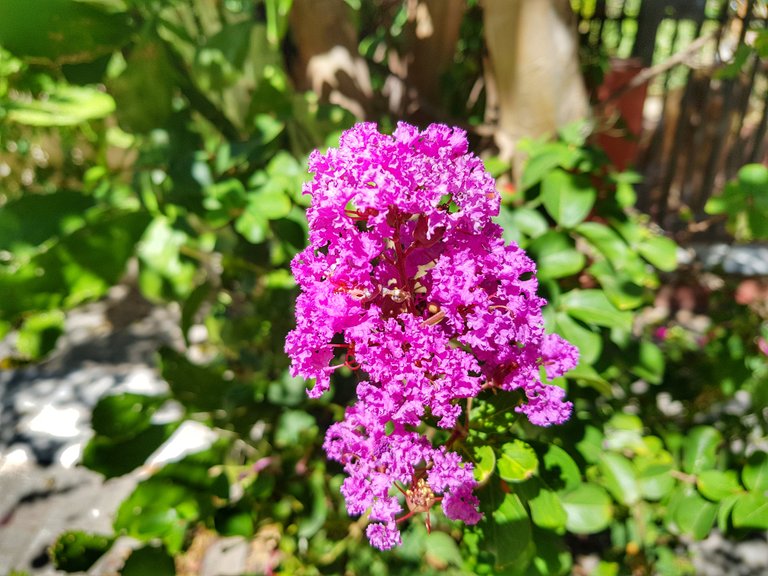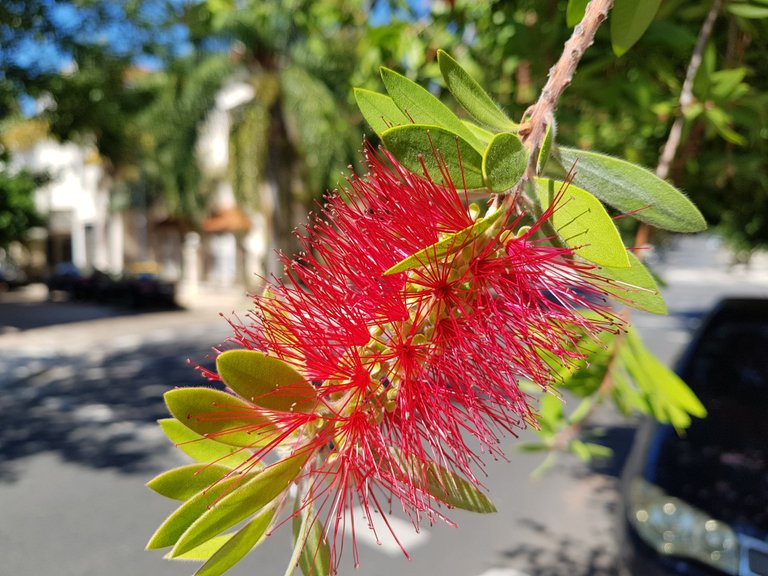¿los seres humanos descendemos de las plantas?

Quizás el título sea algo engañoso, no obstante, me pareció divertido y es por lejos menos incorrecto que el que nuestro actual presidente de la nación mencionó en un discurso que ojalá nunca hubiera dicho, quizás y yendo un poco más lejos, nunca debió ser elegido para gobernarnos; en una disertación dijo que los argentinos descendíamos de los barcos mientras que los mexicanos de los indios y los brasileños de la selva. Por supuesto luego de que alguien le hiciera notar que estaba insultando a hermanos latinoamericanos quiso arreglarlo, pero ya era tarde.
Pero no quiero irme por las ramas o mejor dicho si porque el tema además de tener ramificaciones importantes, habla de las plantas y su relación directa con nuestro cuerpo y mente.

En mi biblioteca posee uno de los once libros que escribió Albert Hofmann, para quien no lo conoce o no ha oído hablar de este señor, diré que fue un científico e intelectual nacido en Suiza que fue el primero en haber sintetizado y experimentado en su propia persona los efectos psicotrópicos del LSD (dietilamida de ácido lisérgico) pero cuyo acrónimo proviene del alemán Lyserg Saüre-Diäthylamid; algunos días atrás, le quité el polvo acumulado por años de estar depositado en el lugar de los libros que menos entusiasmo me despiertan y me puse a leerlo.

Contrariamente a lo que pensaba, el libro posee, además, de explicaciones científicas que escapan casi totalmente a mi entendimiento, disquisiciones filosóficas, metafísicas y lógicas que son explicadas de forma clara y hasta divertida por momentos, Hofmann en su libro se pregunta como una molécula producida por una planta calce perfectamente en receptores ubicados en el cerebro humano. La respuesta también está planteada como pregunta con una respuesta a medias, algo superior debe existir.
En otros libros que no poseo, pero sobre los que estuve investigando un poco, junto a otros autores relaciona al SLD y otros psicotrópicos con hechos y personajes de la historia, el que más llamó mi atención es uno que investiga los misterios eleusinos, ceremonias religiosas que se celebraban en la antigua Grecia, más precisamente en la ciudad de Eleusis, eran ritos mistéricos que se celebraron durante más de 2.000 años.
Hofmann trabajó en los laboratorios Sandoz (ahora Novartis) donde investigó y desarrolló drogas compuestas por elementos naturales, el propio LSD es un alcaloide sintetizado que descubrió cuando estudiaba el cornezuelo del centeno, un hongo que también producen otros cereales.

Su investigación y las experimentaciones posteriores fueron dedicadas a los efectos terapéuticos y el tratamiento de enfermedades mentales y físicas, lamentablemente algunos utilizaron su creación para otro tipo de negocios y el LSD fue prohibido durante mucho tiempo, recién en los últimos años se ha vuelto sobre la senda marcada por el químico suizo en el año 2007, las autoridades suizas dieron permiso para experimentar en psicoterapia con pacientes que sufrían de enfermedades físicas terminales. Fue el primer estudio sobre los efectos terapéuticos del LSD en el mundo en 35 años.
Entonces vuelvo a la pregunta inicial de Hofmann, ¿esa relación tan perfecta entre el cerebro humano y en este caso un derivado de una planta, es solo una casualidad?
Do humans descend from plants?
Perhaps the title is somewhat misleading, however, I found it amusing and far less incorrect than the one our current nation's president mentioned in a speech I wish he had never made, perhaps going a little further, he should never have been elected. to govern us; In a dissertation, he said that Argentines descended from boats while Mexicans from Indians and Brazilians from the jungle. Of course, after someone pointed out to him that he was insulting his Latin American brothers, he wanted to fix it, but it was too late.
But I don't want to beat around the bush, or rather because the subject, besides having important ramifications, talks about plants and their direct relationship with our body and mind.
In my library I have one of the eleven books written by Albert Hofmann, for those who do not know him or have not heard of this man, I will say that he was a scientist and intellectual born in Switzerland who was the first to have synthesized and experimented on his own person the psychotropic effects of LSD (lysergic acid diethylamide) but whose acronym comes from the German Lyserg Saüre-Diäthylamid; a few days ago, I removed the dust accumulated by years of being deposited in the place of the books that arouse me the least enthusiasm and I began to read it.
Contrary to what I thought, the book also has scientific explanations that are almost totally beyond my understanding, philosophical, metaphysical, and logical disquisitions that are explained in a clear and even funny way at times, Hofmann in his book, he wonders how a molecule produced by a plant fit perfectly in receptors located in the human brain. The answer is also posed as a question with a half answer, something higher must exist.
In other books that I do not own, but on which I was researching a bit, together with other authors, he relates SLD and other psychotropic drugs with events and characters in history, the one that most caught my attention is one that investigates the Eleusinian mysteries, religious ceremonies that were celebrated in ancient Greece, more precisely in the city of Eleusis, were mystery rites that were celebrated for more than 2,000 years.
Hofmann worked at Sandoz Laboratories (now Novartis) where he researched and developed drugs composed of natural elements. LSD itself is a synthesized alkaloid that he discovered while studying ergot, a fungus that other cereals also produce.
His research and subsequent experiments were dedicated to the therapeutic effects and treatment of mental and physical illnesses, unfortunately, some used his creation for other types of businesses and LSD was banned for a long time, only in recent years has it returned to the Following the path set by the Swiss chemist in 2007, the Swiss authorities gave permission to experiment in psychotherapy with patients suffering from terminal physical illnesses. It was the first study on the therapeutic effects of LSD in the world in 35 years.
So, I go back to Hofmann's initial question: Is such a perfect relationship between the human brain and, in this case, a derivative of a plant, just a coincidence?
Héctor Gugliermo
@hosgug